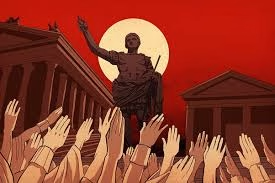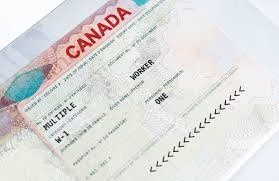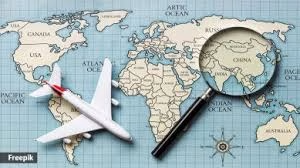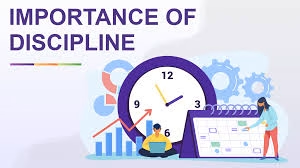
What Is Dictatorship? The Mask of Power A Controversial Dive into Power Without Accountability
What is dictatorship? It’s a word that sparks fear, raises eyebrows, and stirs political debates worldwide. While democracy sings the praises of freedom, representation, and rights, dictatorship silences opposition, centralizes power, and demands obedience. Yet, across the globe, and even in so-called democracies, the spirit of dictatorship lingers, thrives, and evolves.
To understand dictatorship is not just to define it but to recognize it even when it comes disguised in a suit, a ballot, or a viral speech.
This article explores dictatorship in its raw and modern forms, its roots, dangers, and the controversial idea that some dictatorships may deliver stability or progress. Brace yourself: we are diving into one of the most abused and misunderstood terms in global politics.

1. The Origins of Dictatorship: From Rome to Raw Power
Dictatorship wasn’t always a dirty word. In ancient Rome, a dictator was a temporary leader granted extraordinary powers in times of crisis. The idea was noble: efficient leadership to resolve emergencies. The catch? The power was supposed to end after six months. But history shows what happens when power isn’t returned it corrupts, absolutely.
Today, the modern dictator is no longer a crisis manager they are the crisis. Think of Hitler, Mussolini, Stalin. Or more recently, Vladimir Putin, Alexander Lukashenko, or North Korea’s Kim dynasty. These men didn’t just hold power they became the state.
2. Core Characteristics of Dictatorship
Dictatorships vary, but they share chilling features:
- Absolute power with no real checks and balances
- Suppression of opposition – political rivals, journalists, critics
- Control of information – propaganda, censorship, internet restrictions
- Rule by decree – laws change overnight, often retroactively
- Cult of personality – the leader is glorified, infallible, godlike
Dictatorship is not about governing it’s about dominating.
What’s the Full Meaning of a Political Statement?
How Nigeria’s Entertainment Industry Works
3. Types of Dictatorships
Dictatorships don’t wear a single uniform. Here are key variations:
- Military Dictatorship: Armed forces rule directly (e.g., Myanmar).
- Personalist Dictatorship: One man rules everything (e.g., North Korea).
- Single-party Dictatorship: One political party dominates (e.g., China).
- Hybrid Regimes: Fake elections, media control, but democracy in name only (e.g., Russia).
There’s also the “benevolent dictatorship” where the ruler is autocratic but delivers economic or social progress (e.g., Lee Kuan Yew of Singapore). But is benevolence enough to justify tyranny?
4. How Dictators Rise and Rule
Most dictators don’t seize power with tanks; they creep in.
- Crisis manipulation – using terrorism, pandemics, or war to justify emergency powers.
- Democratic decay – winning elections, then dismantling institutions.
- Propaganda mastery – shaping public opinion through lies and fear.
- Divide and rule – ethnic, religious, or class divisions fuel loyalty through fear.
Dictators don’t need to be smart. They just need to be ruthless.
5. Life Under Dictatorship
- Freedom dies – speech, press, religion, movement all monitored or restricted.
- Fear reigns – people whisper, not speak. Informants lurk. Torture is policy.
- Economies distort – cronies thrive while the masses suffer.
- Justice dies – courts become tools for revenge, not fairness.
- Youth lose hope – entire generations grow up with trauma or silence.
It’s not just a form of government. It’s a war against the human spirit.
6. The Dictator’s Dilemma
Here’s the irony: dictators often trap themselves. When no one can challenge you, you stop hearing the truth.
- You believe your own lies.
- You destroy competent critics.
- You fear betrayal from friends.
- You rule by paranoia.
Dictators die alone or are dragged through the streets.
7. Modern Dictatorship: Digital, Polished, Deadly
Dictatorship has evolved:
- Surveillance states – China’s facial recognition, Nigeria’s social media monitoring
- Digital censorship – Internet shutdowns during protests
- Algorithmic manipulation – rigging online discourse
Authoritarianism now wears a tech-savvy smile. The goal is the same: control.
8. Real-World Examples
- Russia (Putin): From democracy to dictatorship wrapped in nationalism
- Belarus (Lukashenko): 30 years in power, protest crushed violently
- North Korea (Kim Jong-un): Brutality masked as patriotism
- Eritrea (Isaias Afwerki): Africa’s “North Korea”
- Tunisia (Kais Saied): A slow democratic backslide into autocracy
And yes, some say Trump flirted with dictatorship, especially in how he challenged U.S. institutions.
9. Are There Benefits to Dictatorship?
Controversial argument: Some dictators bring development.
- Singapore’s rise under Lee Kuan Yew
- Rwanda’s order under Paul Kagame
- China’s economic boom under one-party rule
But at what cost? No freedom. No dissent. OR No guarantees the next dictator will be “benevolent.”
Can economic growth justify torture? Most would say no.
10. Dictatorship vs. Democracy: A False Choice?
Some argue democracy is chaotic, corrupt, slow.
Dictatorship is efficient, clean, quick.
But efficiency without rights is slavery dressed as success. Democracy may be noisy, but it offers tools for self-correction. Dictatorship offers only one voice and no room for change.
11. The Danger of Soft Dictatorship
Many modern leaders are authoritarians in disguise:
- They allow elections, but rig them.
- They allow media, but muzzle it subtly.
- They speak of unity, but practice division.
This is soft dictatorship and it’s arguably more dangerous because it’s harder to spot.
12. Why Nigeria Must Stay Vigilant
Nigeria has tasted dictatorship and it left scars:
- Military coups
- Media censorship
- Civil rights violations
Today, threats still loom:
- Weak institutions
- Ethnic-based appointments
- Security agencies acting like party enforcers
If we’re not careful, dictatorship could return with better PR and digital polish.
Whatsnextng Conclusion: Dictatorship Is Not Just a Regime It’s a Warning
To understand dictatorship is to see beyond thrones, medals, or military parades. It’s to recognize when power becomes a mirror reflecting only the ego of the ruler.
Dictatorship, often misunderstood and misused in political conversations, is a system of government where power is centralized in the hands of one ruler or a select few, with no effective opposition or accountability. This article explores its ancient Roman origins, where it once meant emergency leadership, and contrasts it with the brutal modern reality where dictators become the law, the judge, and often, the godlike figure in society.
It outlines the key characteristics of dictatorship absolute power, suppression of dissent, propaganda, and a personality cult and explains how these regimes rise, often not through force but through manipulation of democratic systems and crises.
The piece distinguishes between different types of dictatorship military, personalist, single-party, and “benevolent” and offers a stark look at how life under such regimes destroys freedom, justice, and human dignity.
Controversially, the article addresses the belief that some dictatorships deliver development (like Singapore or Rwanda), but asks: at what cost?
It warns against the modern rise of “soft dictatorships”, where democratic institutions exist on paper but are hollowed out in practice through censorship, election manipulation, and surveillance.
Dictatorship is not just about who is in power. It’s about how power is usedwithout question, without limits, without truth.
In this age of global uncertainty, we must reject the illusion of strongmen as saviors. Because when one man becomes more powerful than the people, the nation dies a little every day.
And the silence that follows? That’s dictatorship.






